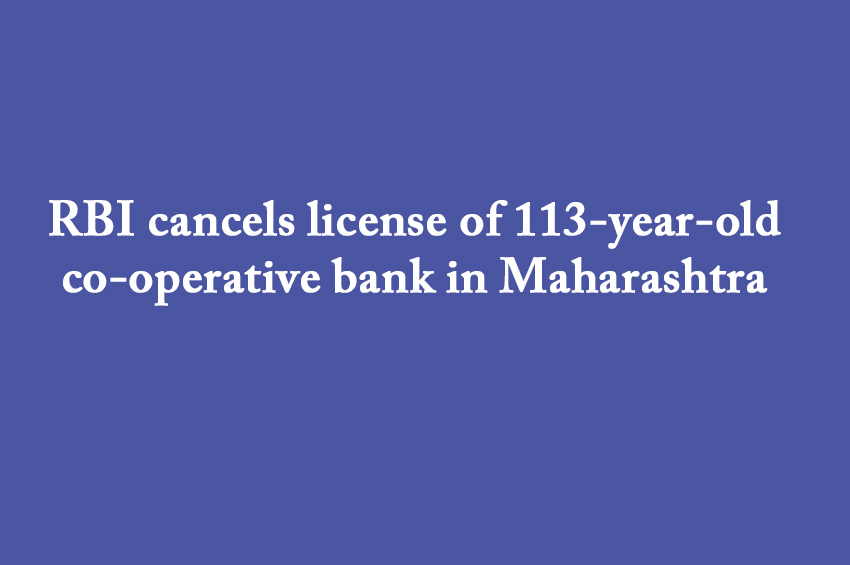Winning Bizness Sports Desk
Mumbai. India's central bank Reserve Bank of India (RBI) has taken a major action by revoking the license of Nagar Urban Co-operative Bank, which is the largest and once of the oldest co-operative bank in Ahmednagar city. This bank has a glorious tradition of more than 113 years. The RBI has ordered that the bank should not start operations after the end of banking operations on Wednesday which meant that after October 5, transactions to be made through the bank have been stopped. Additional Secretary and Central Joint Registrar of the Union Ministry of Cooperatives have been instructed to appoint an administrator to the bank. Reserve Bank of India Chief General Manager Yogesh Dayal issued these orders. Interestingly, the Reserve Bank of India has cracked down on three major public sector banks. This includes the country's largest bank, State Bank of India (SBI), Indian Bank and Punjab and Sind Bank. However, this action will not affect the customers.
Bank does not have sufficient capital
Urban Bank does not have sufficient capital and earning opportunities to carry out banking business. This does not comply with the provisions of Section 56 of the Banking Regulation Act, 1949. RBI has also said that it is not in the interest of its depositors to continue the bank in such a situation. In view of the current financial condition of the bank, it is unable to pay the full amount of deposits to the existing depositors, and allowing the bank to continue its business would adversely affect the public interest. The RBI has mentioned in its order that the license of the bank has been canceled due to these reasons.
The effect of RBI action on depositors?
The bank will no longer be able to accept deposits or repay deposits. Every depositor will be entitled to receive the deposit insurance claim amount from the Deposit Insurance and Credit Guarantee Corporation (DICGC) up to a financial limit of Rs 5 lakh. According to the data submitted by the bank under the provisions of the Act, 1961, 95.15 percent of the depositors are entitled to get the full amount of their deposits from DICGC, the RBI said.


